The ME Department has a new initiative to reform its graduate program. The reformed graduate program allows the Department to enhance the professional development of our 3rd- and 4th-year ME Ph.D. and 2nd-year Master’s students and help them pursue diverse post-graduation careers, including academic, non-academic positions entrepreneurial career paths. The Department hosts a student-centric seminar series as part of this initiative. In the seminar, several graduate students are invited to give 3-min elevator pitches on their research projects to ME alumni from industries, startups, and national labs, assuming an audience of non-experts in their fields. Each elevator pitch talk addresses three key questions in 3 min: (1) what real-life problem your research addresses, (2) how you solve it in a unique way, and (3) what impact it would have on society. Graduate students and their advisors are invited to participate in this exciting event.
March 31, 5:00 – 6:00 pm, In-person meeting at 2505 GGB
Topic: “Control and Robotics”
Student Speakers
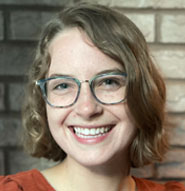 Shannon Danforth (Vasudevan Lab): Shannon is a M.S./Ph.D. student in Mechanical Engineering at the University of Michigan, and uses control theory and optimization to study human motion. She is also earning a Science, Technology, and Public Policy certificate in the Ford School of Public Policy, focusing on the interaction between technology and society. Shannon grew up in the Seattle area, earned her B.S. in Civil Engineering at the University of Portland in 2016, and participated in the Los Alamos Dynamics Summer School in 2016. She received the NSF Graduate Research Fellowship, AISC Education Foundation Scholarship, and the Tau Beta Pi Scholarship, and has attended the Rising Stars in Mechanical Engineering and ComSciCon Michigan workshops.
Shannon Danforth (Vasudevan Lab): Shannon is a M.S./Ph.D. student in Mechanical Engineering at the University of Michigan, and uses control theory and optimization to study human motion. She is also earning a Science, Technology, and Public Policy certificate in the Ford School of Public Policy, focusing on the interaction between technology and society. Shannon grew up in the Seattle area, earned her B.S. in Civil Engineering at the University of Portland in 2016, and participated in the Los Alamos Dynamics Summer School in 2016. She received the NSF Graduate Research Fellowship, AISC Education Foundation Scholarship, and the Tau Beta Pi Scholarship, and has attended the Rising Stars in Mechanical Engineering and ComSciCon Michigan workshops.
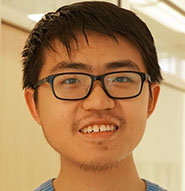 Jinsun Liu (Vasudevan Lab): Jinsun is a fifth year Ph.D student in Robotics Department at the University of Michigan, Ann Arbor. He received his BS in Electrical Engineering and Computer Science at the University of Minnesota, Twin Cities in 2015 and his MS in Electrical and Computer Engineering at the University of Michigan, Ann Arbor in 2017. His current research focuses on path planning for autonomous vehicles, bipedal robot locomotion and optimization. He received the Richard F. and Eleanor A. Towner Prize for Distinguished Academic Achievement at UM in 2022.
Jinsun Liu (Vasudevan Lab): Jinsun is a fifth year Ph.D student in Robotics Department at the University of Michigan, Ann Arbor. He received his BS in Electrical Engineering and Computer Science at the University of Minnesota, Twin Cities in 2015 and his MS in Electrical and Computer Engineering at the University of Michigan, Ann Arbor in 2017. His current research focuses on path planning for autonomous vehicles, bipedal robot locomotion and optimization. He received the Richard F. and Eleanor A. Towner Prize for Distinguished Academic Achievement at UM in 2022.
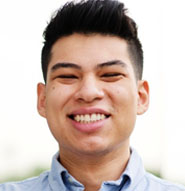 Leo Medrano (Rouse Lab): Leo is a 4th year Mechanical Engineering PhD student in the Neurobionics Lab under Elliott Rouse. He graduated from the Georgia Institute of Technology with a BS degree in Mechanical Engineering. His research interests include studying the impact of powered exoskeletons on human energetics to inform future device designs. Additionally, he is developing a Kalman Filter-based controller to drive exoskeleton assistance throughout the non-steady-state conditions featured in practical environments. Finally, he has investigated the potential for different exoskeleton architectures to reduce lower-limb joint loading.
Leo Medrano (Rouse Lab): Leo is a 4th year Mechanical Engineering PhD student in the Neurobionics Lab under Elliott Rouse. He graduated from the Georgia Institute of Technology with a BS degree in Mechanical Engineering. His research interests include studying the impact of powered exoskeletons on human energetics to inform future device designs. Additionally, he is developing a Kalman Filter-based controller to drive exoskeleton assistance throughout the non-steady-state conditions featured in practical environments. Finally, he has investigated the potential for different exoskeleton architectures to reduce lower-limb joint loading.
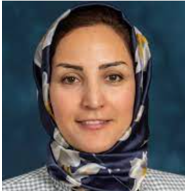 Tayebeh Sahraeibelverdi (Oldham Lab): Tayebeh currently is Ph.D. Candidate at Mechanical Engineering department of the University of Michigan Ann Arbor. She received her B.S. in Electrical Engineering in 2004 and Master’s in 2014, respectively, in Iran. Later she joined as a research assistant at the University of Michigan, Ann Arbor, in 2017. She worked on designing and fabricating optical biosensors, point of care devices, and endomicroscopy systems. Her current research focuses on developing miniaturized optical biomedical imaging systems for neuroscience applications.
Tayebeh Sahraeibelverdi (Oldham Lab): Tayebeh currently is Ph.D. Candidate at Mechanical Engineering department of the University of Michigan Ann Arbor. She received her B.S. in Electrical Engineering in 2004 and Master’s in 2014, respectively, in Iran. Later she joined as a research assistant at the University of Michigan, Ann Arbor, in 2017. She worked on designing and fabricating optical biosensors, point of care devices, and endomicroscopy systems. Her current research focuses on developing miniaturized optical biomedical imaging systems for neuroscience applications.
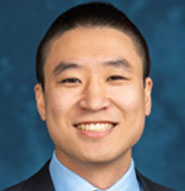 Max Wu (Barton Lab): Maxwell is a PhD candidate in the Department of Mechanical Engineering at the University of Michigan – Ann Arbor. He received a BSE in Mechanical Engineering in 2018, also from the University of Michigan. As a member of the Barton Research Group, his research interests lie in the fields of learning-based control and optimal control of uncertain repetitive systems, with specific focus on the development of economic iterative learning and repetitive controllers.
Max Wu (Barton Lab): Maxwell is a PhD candidate in the Department of Mechanical Engineering at the University of Michigan – Ann Arbor. He received a BSE in Mechanical Engineering in 2018, also from the University of Michigan. As a member of the Barton Research Group, his research interests lie in the fields of learning-based control and optimal control of uncertain repetitive systems, with specific focus on the development of economic iterative learning and repetitive controllers.
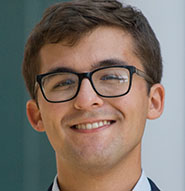 Tyler Toner (Barton Lab): Tyler is a PhD candidate in the department of Mechanical Engineering at the University of Michigan, where he is advised by Prof. Kira Barton and Prof. Dawn Tilbury. Before coming to Michigan, he earned a Bachelor of Mechanical Engineering from Auburn University and spent two summers in the research and development division at the Naval Surface Warfare Center in Panama City, Florida. Tyler’s current research is in robot learning and control for smart manufacturing systems. He is focused on understanding how robots can learn from past behaviors to complete new tasks with minimal human intervention, as well as how teams of heterogeneous robots can collaborate efficiently in unstructured environments. He is a recipient of the NSF Graduate Research Fellowship, a research mentor for the Multidisciplinary Design Program, and a chair of the workshop committee for the Mechanical Engineering Graduate Council.
Tyler Toner (Barton Lab): Tyler is a PhD candidate in the department of Mechanical Engineering at the University of Michigan, where he is advised by Prof. Kira Barton and Prof. Dawn Tilbury. Before coming to Michigan, he earned a Bachelor of Mechanical Engineering from Auburn University and spent two summers in the research and development division at the Naval Surface Warfare Center in Panama City, Florida. Tyler’s current research is in robot learning and control for smart manufacturing systems. He is focused on understanding how robots can learn from past behaviors to complete new tasks with minimal human intervention, as well as how teams of heterogeneous robots can collaborate efficiently in unstructured environments. He is a recipient of the NSF Graduate Research Fellowship, a research mentor for the Multidisciplinary Design Program, and a chair of the workshop committee for the Mechanical Engineering Graduate Council.
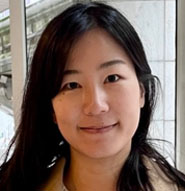 Eunjeong Hyeon (Stefanopoulou and Ersal Lab): Eunjeong is a Ph.D. candidate in Mechanical Engineering at the University of Michigan, Ann Arbor. She received her B.S. and M.S. in Aerospace Engineering from Korea Advanced Institute of Science and Technology in 2015 and 2017, respectively. Her current research focuses on trajectory forecasting and optimal control of connected automated vehicles for improving vehicle energy efficiency. She worked at Argonne National Laboratory as a research aide in 2020 and 2021. During her study and work experience, she has participated in multiple research projects sponsored by the U.S. Department of Energy and National Science Foundation. In addition, she received the Automotive and Transportation Systems (ATS) Best Paper Award at American Control Conference in 2021.
Eunjeong Hyeon (Stefanopoulou and Ersal Lab): Eunjeong is a Ph.D. candidate in Mechanical Engineering at the University of Michigan, Ann Arbor. She received her B.S. and M.S. in Aerospace Engineering from Korea Advanced Institute of Science and Technology in 2015 and 2017, respectively. Her current research focuses on trajectory forecasting and optimal control of connected automated vehicles for improving vehicle energy efficiency. She worked at Argonne National Laboratory as a research aide in 2020 and 2021. During her study and work experience, she has participated in multiple research projects sponsored by the U.S. Department of Energy and National Science Foundation. In addition, she received the Automotive and Transportation Systems (ATS) Best Paper Award at American Control Conference in 2021.
Guest Alumni: Laura A. Wojcik (CEO, L.A. Wojcik & Associates, LLC), Tim Athan (Former Science and Technology Committee of the U.S. House of Representatives)
Zoom Link: https://umich.zoom.us/j/93715343398 (Passcode: MEGrad2022)